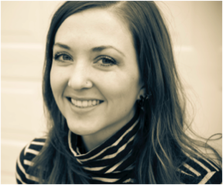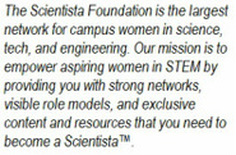|
By Julie Wolf Despite the U.S. News and World Report’s rankings, there’s no one “best” college experience for everyone. A number of personal decisions are involved in choosing where to go to school, including location, cost, competitiveness, and interests. An important decision in school choice is the size of the institution: Will you go to the large, research-focused university? Or do you prefer a smaller, more undergraduate-focused liberal arts school? Either choice can lead to a top-notch education, but it’s important to ensure you’re making the most of your opportunities wherever you choose to attend. Although there are a wide variety of university types, this two-part series will focus on the opposite ends of the spectrum mentioned above: this article will cover how to get the most from opportunities at a large, research-focused university. Get to know your TA When the professor isn’t available, the teaching assistant (sometimes called graduate student assistant) is a great intermediary. The TA generally has a strong background in the course material and should be able to help you answer practice question sets and review course content. Choose interesting courses Large universities often have a large course catalog, and may offer more specialized upper-level courses. Take advantage and explore the varied options: these are often courses taught by a field’s top researchers, who can offer insights on the most recent research findings. Plan your major courses A large course catalog can also make it tough to choose a major. While you should explore your options and take diverse courses, make a plan for what you need to graduate as soon as you declare (we’ve previously dealt with how to choose a major here. Don’t forget to interact with course counselors, who can make interesting suggestions for distribution fulfillments and ensure you don’t skip any prerequisites. Once your major courses are planned, you can fill in other subjects that might round out your education – and maybe even lead to a minor or double major! Join a research group One major advantage of a large research university is the opportunity to perform research! No matter your interest – epidemiology, astronomy, psychology, geology – there is likely an opportunity for you to directly participate in impactful scientific research. The keys to getting a good position are a good attitude, persistence and a little luck! Find your niche Don’t get lost in the shuffle at a large research university! Discover your niche and build a community to enjoy your college years. Volunteer, join a sorority, tutor, work, and if your interest doesn’t have a club, start one! Be proactive and you can be rewarded with enriching experiences that build a strong foundation for your post-college years.  About the Author Julie Wolf is a research scientist studying infectious disease at Albert Einstein College of Medicine in New York. She is passionate about increasing scientific literacy and improving scientific communication in traditional and nontraditional settings. Julie has taught at CUNY Bronx Community College, Long Island University, and the Brooklyn-based community biolab, Genspace. She writes for Scholastic Science World and the Scientista Foundation. Comments? Leave them below!
0 Comments
Your comment will be posted after it is approved.
Leave a Reply. |
Education BlogAbout ScientistaSubscribe!NEW!New PostsWhat's HotClick to set custom HTML
You Might Like...
Connect With UsLatest tweets |
The Scientista Foundation, Inc. All Rights Reserved © 2011-2021 | Based in NY | contact@scientistafoundation.org
The Network for Pre-Professional Women in Science and Engineering
The Scientista Foundation is a registered 501(c)(3) -- Donate!
The Network for Pre-Professional Women in Science and Engineering
The Scientista Foundation is a registered 501(c)(3) -- Donate!


 RSS Feed
RSS Feed









